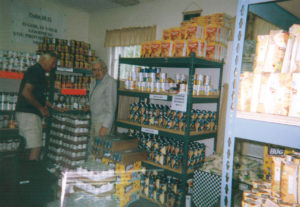Abundance 1: What Does it Mean to be Hungry?

Abundance. What does it mean to be hungry?
For starters, it means you don’t have the money to buy the food you need for the next meal.
For one other thing, it means getting put in a category, or two, or even thirty. And, getting labeled. When the economic downturn began around 2007, new categories and labels appeared weekly, daily even. Journalists, politicians, social workers, sociologists, writers, created new categories as they related stories about hungry and homeless people. Stories about hungry people appeared in new ways and different situations.
The irony: labels created other labels. Simple truths seem endless and obscure the simple realities. Reduced to the lowest common denominator, a person is hungry without enough to eat. And a person is homeless without a roof to sleep under.
Abundance. Examining the label, hungry means missing meals. It means children only eat at school. Life is good when school offers a universal breakfast to all students. Lucy holds in a school with a backpack program so children bring home food on Friday afternoon for something to eat over the weekend.
Being hungry is not a category. It’s a situation. It can happen to anyone.
Hungry people are real. In the food pantry, I saw a person with a life instead of a label. Hunger and homelessness happened in many ways Every hungry or homeless person in the food pantry line has a unique story to tell which is beautiful, spiritually revealing, and heartbreaking. Each story explains what happens to a person when things spin out of control and the world falls apart. Invariably, there is a path to travel.
Questions surface:
“Why do I do what I do?”
“How did I get in this mess?”
“How can I escape?”
“Who will I be in my new life?”
The journey begins, not ends, when things spin out of control, the world falls apart, and the person hits bottom.
Past mistakes lead to a new, better place. It’s a good time to figure out what’s important and what isn’t. It means offloading things you can’t keep anymore.
With nothing left to lost, you have a setup for your new life and opportunity. For some, moving into a job means you pay taxes, rent, maybe buy some clothes, get retrained. This is good for your community, the state and the Fed.
For all the bottoming out, I never saw a person unable to fix the circumstances. Nobody hit bottom and then hung around down there. Everyone seemed to be working toward moving back into someplace or something. As far as I could tell, anyone deciding to commit suicide with a drug overdose or something else left town to end it all. I never saw or heard those stories play out.
Several shoppers died a socially acceptable death by cancer. What is a person to do when the job opportunities evaporate, the house forecloses, the savings spent, Social Security isn’t enough, and the person is too old to start anew.
I questioned the fate of several shoppers in the depths of mental illness. By the time a person was no longer communicating in a language understandable by fellow human beings, life becomes challenging. One young shopper spoke in tweets, whistles, hisses, and other undecipherable sounds. His mother, hidden in the background, did what she could. I always wondered what would happen to him when she died.
This is the heart of the matter because pantries are all about gratitude and abundance. Churches see pantries as an outreach project. Outreach is a popular word. Congregations support feeding the hungry, especially if the money goes to a group of children in Botswana, Somalia, India. The farther away, the better, it seems. When outreach is local things get dicey.
Pantry deniers describe people as freeloaders, homeless people as lazy, and all pantry shoppers as owners of upscale cars.
Whether the car is large, small, old, new, or a broken-down beater even, there’s a larger reality here. Whether the vehicle was driven around or lived in or both, it’s the last vestige of days gone by. By the time a person gets to temporary housing for the homeless, things are reduced to a few clothes, a blanket, hot plate, or maybe an electric skillet or crock pot.
For me, feeding hungry people in a food pantry is an act of gratitude. When volunteers feed hungry people, we own up to the amazing abundance in and around us. We also face our own spiritual hunger. Feeding the hungry in a food pantry addresses the divine hunger issue head-on.
Abundance surrounds both pantry shoppers and volunteers. Many churches and synagogues house a food pantry in a room in the basement. There is absolutely no excuse for anyone in our country to go hungry.
Not everyone recognizes abundance in a pantry. Not everyone recognizes the holiness of hunger. I always know those who see its grace and those who don’t. Those questioning who should be fed and who shouldn’t be fed have trouble with the sacred aspects of hunger.
To be continued…
Thank you for reading this article. Abundance 2 will continue in the next post.
Please refer this article to your preferred social media network.
Thurman Greco



alleviating hunger, breathing, cash flow, Disaster Preparation, domestic violence and sexual assault survivors, elderly poor, emergency feeding programs, emergency food assistance, emergency food assistance program, employed poor, fear, feeding the homeless, Feeding the Hungry, food desert, food insecurity, food insecurity for seniors, food pantries, food pantry, food pantry blog, generational poor, homelessness, hunger, Hunger is Not a Disease blog, ill poor, infant poor, meaning of life, medical expenses, meditation, mental illness, nutrition assistance, persistent poor, protection, resource poor, serious illness, SNAP, social justice, soup kitchens, struggling poor, the transportation challenged, Thurman Greco, transportation challenged, trauma, trauma sensitive yoga, underemployment, unemployment, Woodstock





